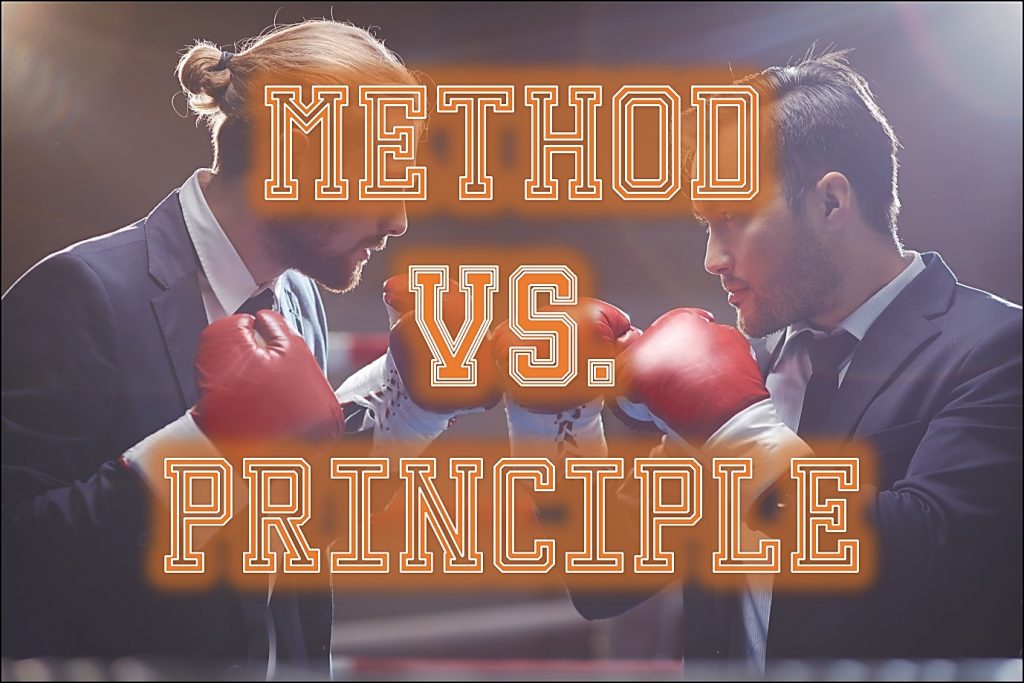Singing Methods vs. Singing Principles
Singing Methods vs. Singing Principles
Before we talk-singing methods, let’s first talk mobile phones. Trust me…I am going somewhere with this!
One of the most successful tech companies of the past twenty years is Apple. For some consumers, Apple products are akin to sacred talismans, invoking religious fervour. Every time a new iPhone is released the Apple faithful line-up for miles outside Apple stores waiting to get their hands on the latest and greatest.
‘Propriety software’ drives Apple products. Essentially, this means when you buy a new iPhone your options for customisation are heavily restricted. This is excellent for those who don’t consider themselves ‘tech-savvy.’ The opposite approach to software development is referred to as ‘open source.’ Android and Linux operating systems are examples of open source. Is one better than the other? Well, that all depends on how you want to use the device and the software that drives it.
Power Users
For some people, the ‘locked-down’ propriety software shipped with Apple products is excellent, because it is highly accessible and easily learnt. For many other users, however, Apple products are too restrictive. ‘Power Users,’ those people who drive the software to its full potential, will often gravitate towards open source software because it allows more scope for customisation.
But not everyone is (or wants to be) a Power User!
To become a Power User, one needs to know and understand a bit more than the location of the on/off button. The Power User must educate themselves with vast amounts of information about code, hardware infrastructure and the principles that drive the ‘back-end.’
Methods versus Principles
I recently read an excellent quote by Ralph Waldo Emerson (1803–1882), the American essayist: “As to methods there may be a million and then some, but principles are few. The man who grasps principles can successfully select his own methods. The man who tries methods, ignoring principles, is sure to have trouble.”
I am certain you have noticed: there are countless singing methods available to today’s developing singer. Many of these methods have been widely acclaimed. Interestingly, many of the very same ‘widely acclaimed’ methods have also been harshly criticised. I will not be adding to either side of the ledger in this post, but I do think we can all aim higher than becoming wedded to a single method.
Some of the more prominent methods have been developed by pedagogues who identified fundamental principles required for good singing. These vocal ‘Power Users’ (methodologists) have then systemised their understandings into a ‘step by step’ approach called a method.
Singing Methods are not BAD!
Methods, generally speaking, are not bad. Singing methods are designed to be highly accessible and easily learnt. Like Apple products, singing methods often have their fervent followers (students), and teachers (believers) who are ‘certified’ to deliver (sell) the singing method’s brand. Again, this is not necessarily a bad thing. However, it is important to note that these methods are often ‘locked-down;’ not allowing the singer to explore their voice or sound beyond the set boundaries of the method.
Perhaps, this is why many beginner singers enjoy using singing methods when they first start. I think it may also be why many new singing teachers gravitate towards delivering ‘methods’ because the method has been designed to be ‘plug n’ play.’ The new singing teacher simply does a short course and then, having been certified in their chosen method, starts to teach student singers.
The difficulty arises when the student, or the teacher, want to explore concepts not covered by the method. Returning to our earlier ‘tech’ illustration, you will have noticed that today’s mobile phone is very different to those we were using only ten years ago. That is because technology has progressed. So too has our understanding of the human voice. It has been my observation that once the principles of current vocal pedagogical understandings are systemised into a method, the knowledge can become somewhat frozen in time; unable to adapt quickly to the new research and findings.
Singing with Principle
The road less travelled is a vocal journey directed by principles; not methods. Learning to sing, when governed by principles, requires the student (and teacher) to educate themselves more broadly. It is not as simple as step 1,2,3. That can be a good place to start, but once the developing singer has established a foundational knowledge about good singing their journey will often need to become ‘non-linear’ and less uniform.
I think I need to stress for some of my readers that I am not attacking any one method. Just like Apple products have found a place in the wider community of technology, singing methods have their place in the broader community of ‘learning to sing.’ But it is important to understand that every singing method will have its shortcomings. Always remember, no one singing teacher can teach you everything you need to know about voice…moreover, no one singing method can cover everything you will ever need when learning to sing. Singing methods will take you thus far, and no further.
Perhaps your views are different to mine. Great. I am keen to learn from alternative views to my own. Regardless, I would love to read your thoughts and comments about singing methods, so please take a moment to share your opinion below.
You might also like to watch the following video about the singing method “Speech Level Singing.”
Sing well, Dr Dan.
— TOOLS for SINGERS —
* FREE 7 Day Vocal Technique Detox
* More Vocal Exercises
* Articles about Voice & Singing
* Dr Dan’s Online Singing Course



